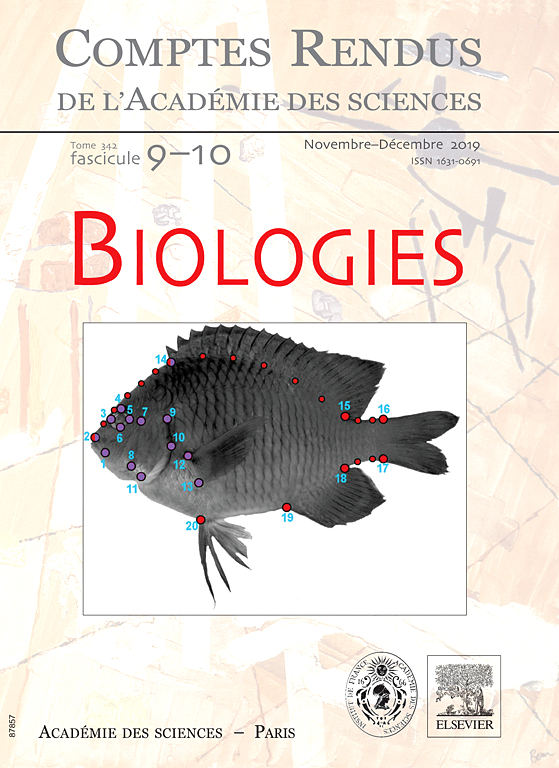[丝裂细胞生成:癌细胞耐药性的关键驱动因素】。]
IF 0.6
4区 生物学
Q4 BIOLOGY
引用次数: 0
摘要
大量文献强调了能量代谢对血液恶性肿瘤治疗反应的重要性。在这篇综述中,我们对急性髓性白血病尤其感兴趣,因为线粒体代谢在治疗反应和抗药性中起着关键作用。我们描述了线粒体生成在应对治疗诱导的压力和该病复发过程中的新概念。本文章由计算机程序翻译,如有差异,请以英文原文为准。
[Mitohormesis: a key driver of the therapy resistance in cancer cells].
A large body of literature highlights the importance of energy metabolism in the response of haematological malignancies to therapy. In this review, we are particularly interested in acute myeloid leukaemia, where mitochondrial metabolism plays a key role in response and resistance to treatment. We describe the new concept of mitohormesis in the response to therapy-induced stress and in the initiation of relapse in this disease.
求助全文
通过发布文献求助,成功后即可免费获取论文全文。
去求助
来源期刊

Comptes Rendus Biologies
生物-生物学
CiteScore
2.40
自引率
0.00%
发文量
22
审稿时长
3 months
期刊介绍:
The Comptes rendus Biologies publish monthly communications dealing with all biological and medical research fields (biological modelling, development and reproduction biology, cell biology, biochemistry, neurosciences, immunology, pharmacology, ecology, etc.).
Articles are preferably written in English. Articles in French with an abstract in English are accepted.
 求助内容:
求助内容: 应助结果提醒方式:
应助结果提醒方式:


